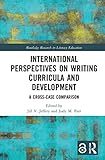Chapter 9 Between joyride and high-stakes examination : Writing development in Denmark
Material type: ArticleLanguage: English Publication details: Taylor & Francis 2021Description: 1 electronic resource (24 p.)ISBN:
ArticleLanguage: English Publication details: Taylor & Francis 2021Description: 1 electronic resource (24 p.)ISBN: - 9780367508142
- 9780367508166
Open Access star Unrestricted online access
This chapter analyses how writing and writing development has been and currently is prescribed and enacted in the curriculum for Danish as a subject (L1) in Years 1–9. Highlighting historical points of impact for writing in curricula from the early–nineteenth century through frequent reforms in the twentieth and twenty-first centuries, we focus empirically on the 2014 ruling curricular document Common Standards and auxiliary documents framing writing assessment at the school-leaving exam, as well as empirical classroom studies. Analyses of steering documents indicate that there has been an unprecedented push towards outcome-based and competence-oriented writing curricula. Following Ivanič's Discourses of Writing (DoW) framework, process writing is found to be the most dominant discourse from Grades 1–7. The analysis of the enacted writing curriculum, which focuses on empirical studies from 2009 until now, reveals that the enacted curriculum is misaligned with the prescriptive curriculum and tends to position the student in ambiguous ways—from joyful writer to a writer tested in high-stakes exams. For discussion, we call for a more coherent writing curriculum. Methodologically, we argue that the DoW framework needs to be complemented with a Nordic Bildung tradition, which accentuates personal formation, and a multimodal framework informing the Danish curriculum.
Creative Commons https://creativecommons.org/licenses/by-nc-nd/4.0/ cc https://creativecommons.org/licenses/by-nc-nd/4.0/
English
There are no comments on this title.

